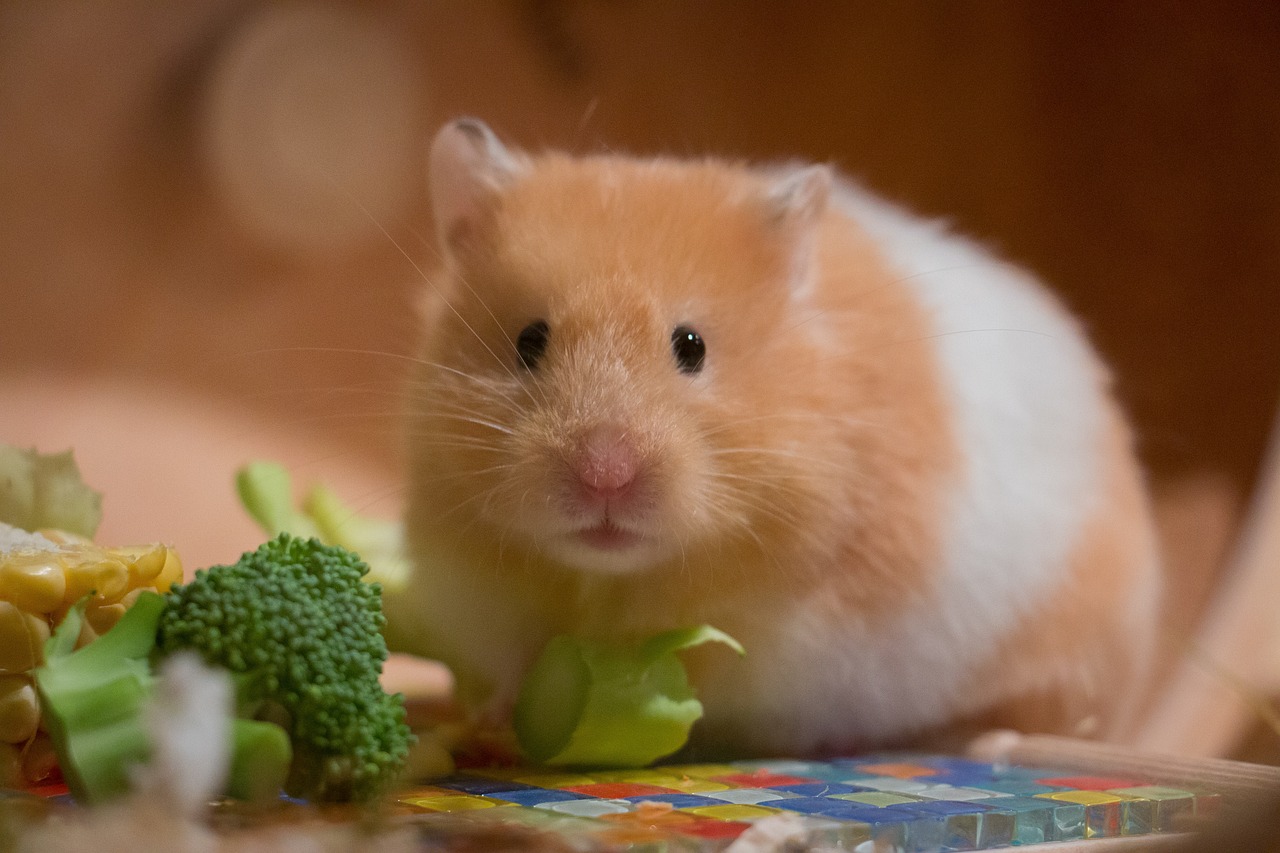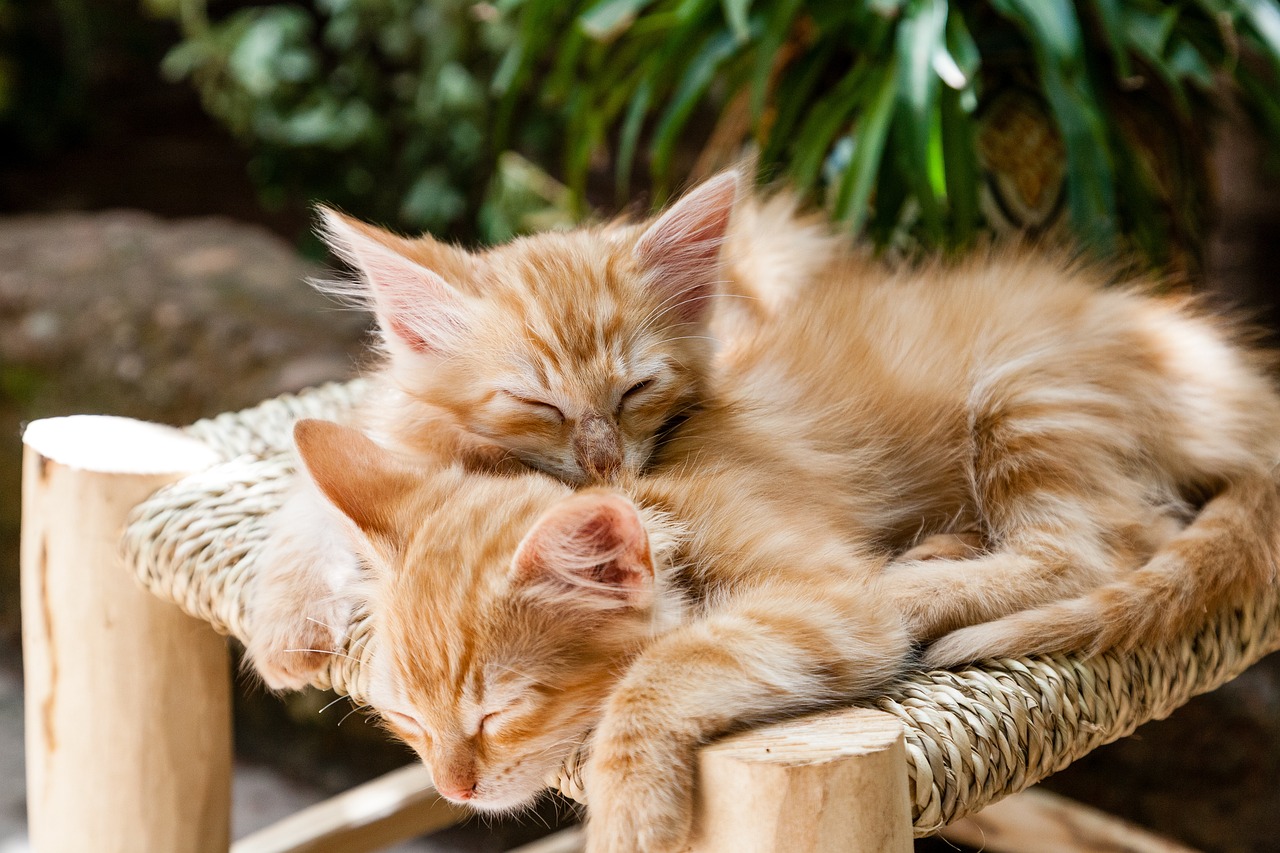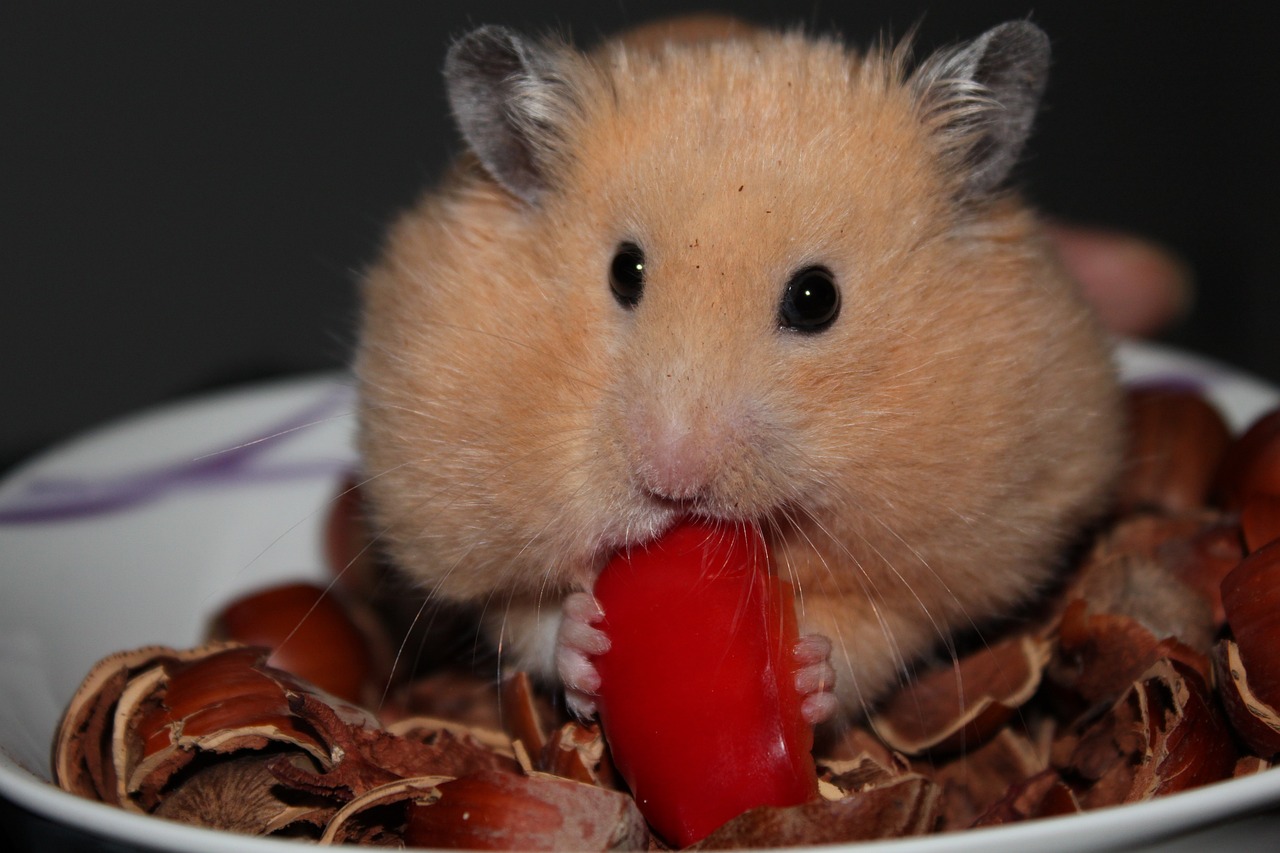
Last Updated on 1 year by Jenny Sovann
Among some of the most asked questions about hamsters is “Why do hamsters eat their babies?” Do they really do that or is it just a myth? Well, let’s dig deeper into that. Hamsters are amazing creatures that always manage to spark our curiosity. They are diverse, meaning you are bound to run into different species of these adorable creatures. With each species, you will find unique characteristics that make them stand out from other hamster species. One thing they have in common is probably how cute and cuddly they are. They are a great choice for pets as they require little effort and money to maintain. However, deep down these adorable creature’s amazing life is a dark secret worthy of a horror movie.
Yes, hamsters have been known to eat their babies. As shocking as it is, there are good enough reasons why hamsters opt for this cannibalistic behavior. It is sad though that they would opt to make a buffet out of their younglings, but in some cases, it is their only survival option. If you have a hamster, then there are tips you can use to avoid watching your hamster resort to this. To figure out why hamsters eat their babies, let’s dive into some reasons that are major contributors to this peculiar behavior.
Hunger
Hamsters are generally known to be loving parents, however, hunger can bring up the instinctual drive to survive. This can block maternal instincts from kicking in and result in the early demise of the offspring. Hunger can also play many other roles that can eventually lead these furry creatures into eating their babies. For instance, if the hamster is malnourished, it won’t be able to produce milk with proper nutrients for her youngling. Being unable to produce nutrients for her youngling and herself, the hamster mother will perceive her baby as a potential source of nutrients. This just shows how important it is that hamsters receive all their needed nutrients.
Lack of availability of food is also capable of altering the hamster mother’s mental state. When the food is limited, the mother will view the offspring as competition for limited resources. With blinded decision-making skills, the hamster mum will opt to make a meal out of her baby. Unfortunately, this just shows how a lack of food and proper nutrients can make the hamster mother prioritize her own survival over her children’s. In the wild, it is for the best as these young hamsters lack the ability and survival skills to survive on their own.
Overcrowding
While hunger is a major reason that contributes to this cannibalistic behavior, it is not the only reason. Overcrowding can also be a trigger to this peculiar behavior. When there is not enough space to roam around in a hamster population, there will be generally increased competition for available resources. To cut the competition, the poor babies may end up being meals for their parents. Overcrowding can also cause the mother hamster to be unable to comfortably take care of her offspring, resulting in the mother opting for cannibalistic behavior.
With high hamster populations, there is also bound to be territorial conflicts. This generally leads to conflicts between the available hamsters, which can result in either submission, injuries or deaths. Surprisingly, the mother hamster can also be in conflict with her own baby. We can conclude that overcrowding may trigger this cannibalism, due to the disruption of normalcy. Diseases can also be very rampant in overcrowded hamster populations. Weakened mothers will opt to feed on their babies as they cannot search for food on their own.
Stress
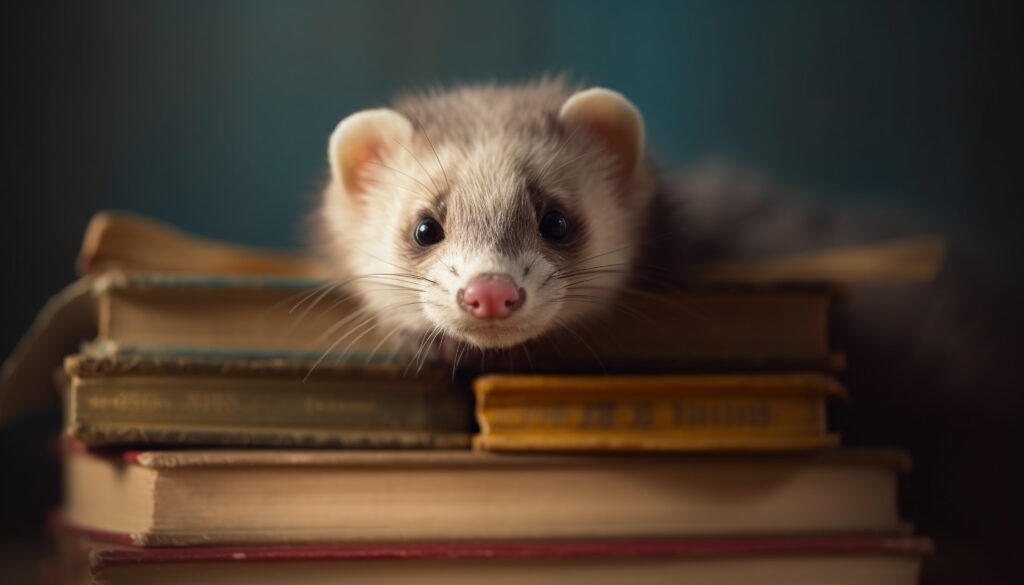
The environment in which the hamster is in can also trigger stress, which is a major contributor in hamsters eating their babies. If in stress for a long period of time, a hamster’s maternal instincts can be barred from stopping the mum from eating her baby. This brings into question what could be the potential triggers for stress in hamsters. There are some stimuli like frequent disturbances, loud noises that will lead our furry mum to be easily frustrated. When they are frustrated, they may be anxious, agitated and even show signs of aggressiveness.
The furry mom being in this state, may result in her harming her young one. In fact, being stressed generally impacts her ability to effectively care for her baby as it can also affect some of her hormones. The best way to avoid stress is to ensure that they are in a safe and secure environment, which does not happen often in the wild. After all, hamsters are prey to many predators out in the wild. Inadequate socialization can also trigger this behavior, as it can create a stressful environment when the mother hamster is around many other hamsters. If you have a hamster, it is important that you don’t handle them often as this can result in stress. Stress can potentially then trigger this cannibalistic behavior.
Abnormal Behaviors
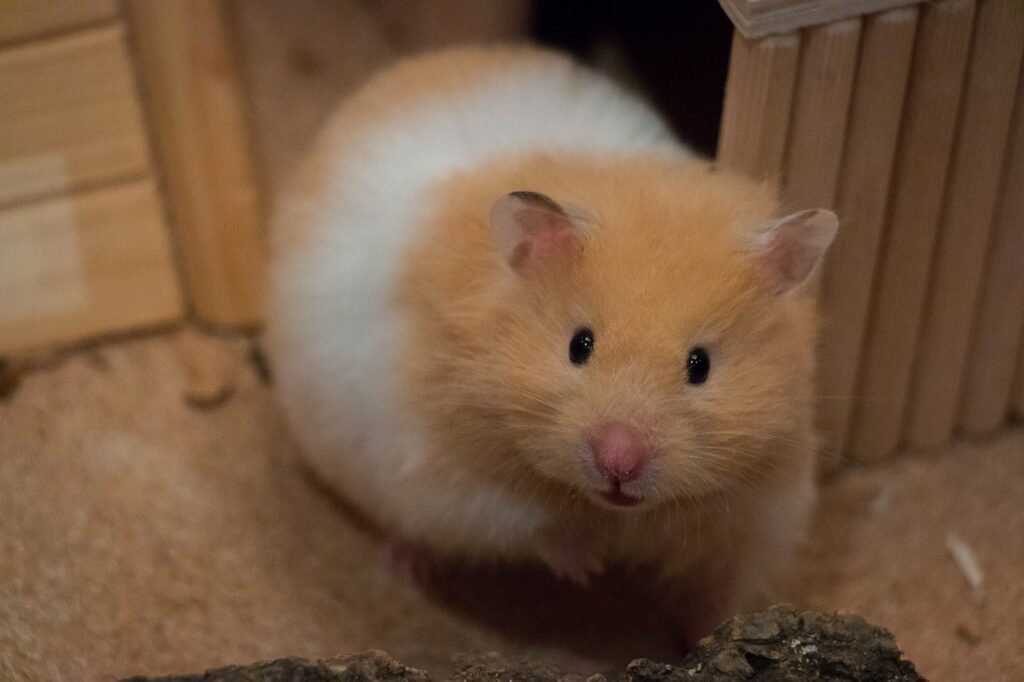
Some factors are environmental and different stimuli, while others are behavioral. Abnormal behaviors from hamsters can also be a leading factor to this cannibalistic feature. For instance, maternal inexperience can be a major contributor to hamsters dining on their younglings. Hamsters that are also generally aggressive, may also act the same way towards their younglings. In rare but severe instances, they may then opt to feed on their young ones. This can be shocking to watch for us.
Unsocial hamsters also tend to be weird in their ways. If they are unable to interact with something, they may tend to resort to violence, even if it is their baby. It is important that we do not forget genes can also play a major role in this. Abnormalities in genes or brain development can kick away natural maternal instincts, which may result in poor babies making a feast for their hamsters. This just shows how important it is for a hamster to grow and develop healthily in order to curb away this terrible opportunistic feeding habit.
Frequently Asked Questions
Q: Is it normal for hamsters to eat their babies?
A: Yes, it is common for hamsters to eat their own babies. This may result from a number of factors like hunger, overcrowding, stress, and abnormal behavior. These causes greatly influence the hamsters’ maternal instincts, making them opt into eating their babies.
Q: Why can’t you touch hamster babies?
A: If you touch a mother hamster, your scent will be placed on them causing a mother hamster to reject them. The scent will be generally unfamiliar to her, which will result in her not taking care of her baby. Handling the hamster younglings can also be stressful to them as they are delicate.
Q: Why is my hamster putting her babies in her mouth?
A: This is normal hamster behavior and does not show your hamster is trying to harm her baby. This can generally be done to move the hamster baby to safer locations where there is warmth and comfort. If they are aggressive, then it is important to separate them.
Q: How long does a hamster stay pregnant?
A: Hamster breeds generally have a gestation period that is around 16 to 18 days. The period is slightly different among the different species of hamsters. It is important that we care for pregnant hamsters by providing warm and comfortable places where they can relax and give birth to the offspring.
Q: How do I stop my hamster from eating his babies?
A: The best way to stop a hamster from feeding on his babies is by providing a stress free and comfortable environment. When there is not enough space or resources hamster mothers may opt to feed on their young ones. Avoid handling the baby as your scent on the baby may cause the hamster mom to reject her baby.
Conclusion
As humans, there are a number of things we can do to prevent such behavior at home or in the wild. By not encroaching in their natural habitat, hamsters can have plenty of resources and not resort to this behavior. At home, if we observe an aggressive hamster, we have to separate it from the others. This provides a safe and comfortable environment for younglings to be brought up. You can also separate a hamster mom from its baby temporarily, if you notice any form of neglect behavior. This then means you will have the responsibility of feeding the young one and taking care of it temporarily, so that it can grow up to be an adorable hamster.
In conclusion, while it may occur rarely, hamsters are capable of eating their own babies. This can be from a number of factors majorly hunger, stress, overcrowding or abnormal behavior. All this can have negative impacts on the natural maternal instincts of hamster mothers. In some cases, it can be survival of the fittest while at other times it may just be a badly behaved hamster. It is very sad that these adorable animals may end up doing this to their young ones, but that’s what makes nature very interesting to learn about. Overall, it is a behavior that can be prevented if we physically intervene.

